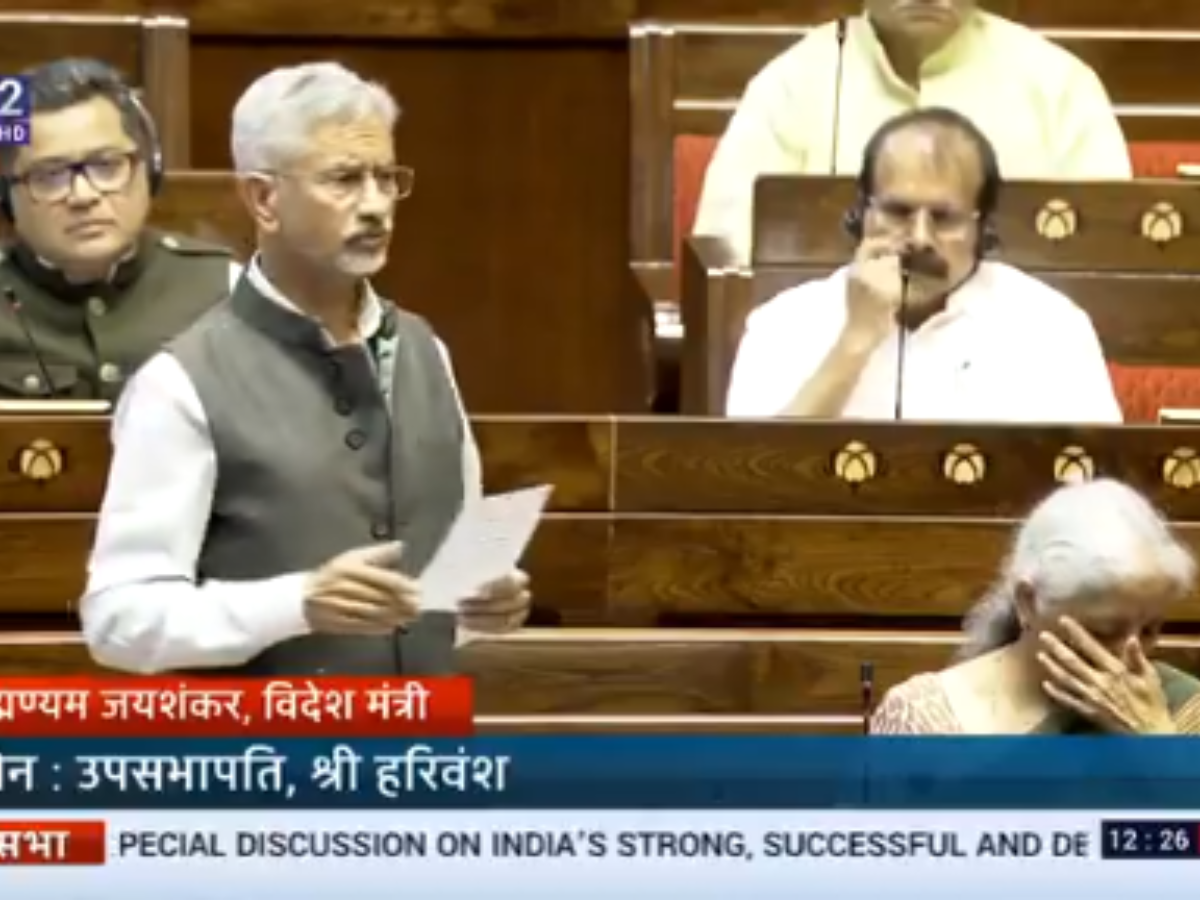S Jaishankar Clarifies:
- No leader asked India to stop Operation Sindoor; it was only the Prime Minister of India.
- There was no mention of trade in any of those conversations.
- And there was no call between PM Modi and Mr. Trump.
External Affairs Minister Dr. S. Jaishankar, speaking in the Rajya Sabha during a special discussion on Operation Sindoor, clarified that no international leader, including U.S. President Donald Trump, urged India to stop its military response. Jaishankar firmly stated, “Let everyone note that between April 22 and June 16, there was not a single phone call between Prime Minister Modi and President Trump.”
He added, “There was no discussion on trade in any of the diplomatic exchanges related to the operation.” According to him, the decision to conduct Operation Sindoor was taken solely by the Indian leadership, with no external pressure or interference.
#WATCH | Delhi | EAM Dr S Jaishankar says, “…When Operation Sindoor commenced, a number of countries were in touch with us to see how serious the situation was and how long it would go… We gave the same message to all the countries… that we were not open to any mediation.… pic.twitter.com/59ht3x4SlG
— ANI (@ANI) July 30, 2025
Jaishankar: Foreign Communications Were Transparent and Documented
The External Affairs Minister mentioned that India had official communications with the United States, European Union, Saudi Arabia, and other countries during the Operation Sindoor period. He said these conversations are publicly available on social media records, underscoring transparency.
Jaishankar reiterated, “The response to all nations was the same: If Pakistan wanted the conflict to stop, it had to send a request through the DGMO (Director General of Military Operations) channel. No alternative was entertained.”
Modi Government’s Anti-Terrorism Record Highlighted in Parliament
Listing major counter-terrorism achievements under the Modi government, Jaishankar said, “We made terrorism a global agenda.” He highlighted several key milestones in India’s international and domestic anti-terror efforts over the past decade:
-
Masood Azhar and Abdul Rehman Makki, both designated global terrorists, were brought to the global spotlight.
-
India hosted a UN Security Council session at the Taj Hotel in Mumbai, the site of the 26/11 terror attacks.
-
Tahawwur Rana, accused in the 26/11 attacks, has been extradited to India and will now face trial.
-
India organized the global conference “No Money for Terror”, aimed at cutting off terror financing.
-
The Resistance Front (TRF), a Lashkar-e-Taiba proxy, was successfully designated as a global terrorist outfit.
UN Confirms TRF’s Role in Pahalgam Terror Attack
Referring to the UN Monitoring Team’s recent analytical report, Jaishankar informed the House that the Pahalgam attack could not have occurred without the involvement of Lashkar-e-Taiba (LeT). The report also confirmed a direct relationship between LeT and TRF.
One UN member state, according to Jaishankar, confirmed that the TRF was synonymous with LeT, and the group was directly responsible for the April 22 attack in Pahalgam. He noted that while Pakistan opposed this classification, the global consensus, backed by UN data, supported India’s assessment.
Must Read: Parliament Monsoon Session Day 8 LIVE: S Jaishankar Addresses Rajya Sabha On Operation Sindoor
Swastika Sruti is a Senior Sub Editor at NewsX Digital with 5 years of experience shaping stories that matter. She loves tracking politics- national and global trends, and never misses a chance to dig deeper into policies and developments. Passionate about what’s happening around us, she brings sharp insight and clarity to every piece she works on. When not curating news, she’s busy exploring what’s next in the world of public interest. You can reach her at [swastika.newsx@gmail.com]







